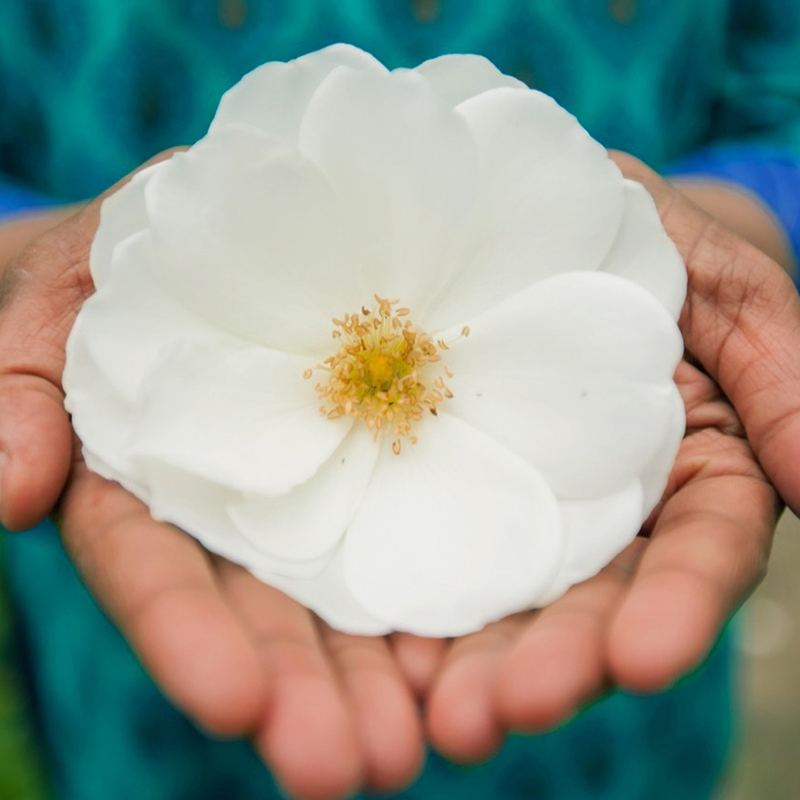In honor of Mother’s day in May, this month’s blog will focus on women. “In Ayurveda, the woman is considered to be “Shakti”; the Mother and Source of creation, in whose lap all of civilization is cradled. When we speak about “women’s health” we understand that this encompasses many different issues during the different stages of her life. Every woman goes through a series of profound changes during her lifetime. The primary changes are called: menarchy, pregnancy, postpartum, and menopause. Three unique organs make a woman very special. They are; the uterus, ovary and breast. The vagina is another organ that plays a major part in every aspect of a woman’s health. Female hormones are equally important factors as they play a vital role in the various physiological and emotional changes.
Estrogen, progesterone and prolactin are the primary female hormones affecting women’s health. There are also some amounts of testosterone in her body and this plays a great role during menopause. Beside these hormones, FSH (Follicular Stimulating Hormone), LH ( Leutinising Hormone) and Gonado Trophic Releasing Hormone are important hormones secreted by the Pituitary gland. While the ovary is capable of forming and releasing both estrogen and progesterone by itself, it is also the reservoir of the ova.
However, Ayurveda does not speak in term s of “hormones”. It has its own unique language and terms. Hormones are considered as “dhatu agni” (fire element in tissue). They are carried by the blood (pitta). Therefore, they are considered a component of Pitta. Dietary and behavioral activities bring many changes in the rakta dhatu (blood). For example; if a pitta-type woman eats plenty of hot, spicy and acidic foods while indulging in pitta-aggravating activities such as playing in the sun or taking a hot tub bath, getting angry, etc, she will aggravate the pitta in the blood. This can cause excessive bleeding during menstruation or lead to menorrahagia. As another example; after the age of forty, the body begins to move towards the vata stage of life and away from the pitta stage of life. During this period, if a vata-type woman does not sleep well, works until late at night, eats plenty of cold foods and salads and eliminates sweets, salt and fats from her diet, she will most certainly aggravate vata in both the blood and the body. This will lead to a more difficult menopausal syndrome. In the same way, when a kapha-type woman excessively indulges in sweet, rich food, eats plenty of dairy products and nuts, and lives a sedentary lifestyle during peri-menopause, she will be accumulating an excess of kapha (mucous) in her blood and body which can lead to tumors or depression.
By knowing one’s own prakruti (true nature), one can plan and practice an appropriate daily and seasonal dietetic and behavioral regime. With this simple effort, the body will maintain balance of the doshas (vata, pitta and kapha). From an Ayurvedic perspective, this balance is considered the “healthy” state of humans.
Ayurveda recognizes that the human body has both male and female energy moving parallel to each other. The body is considered “Ardhanarishwor”; one of the Shiva/Shakti forms of Shiva. According to this, the right part of our body is male-dominating and the left side is female. Therefore, females are (in general) dominated by the left brain. The female energy is called “Shakti”. The beauty of nature is that it provides the principles and tools to balance the female and male aspects of our natures, which shift and change during the different stages of life.
Ayurveda provides a rich and thorough body of herbal medicinal knowledge as a powerful tool to achieve this balance, when needed. For example: for menorrahagia – Jatamamsi and Neem, along with Ashok and Berberis will work wonderfully in pitta-type women. Ashwagandha, Myrrh and Ashok will work extremely well in vata-type women. In the same way, Asok, in combination with Myrrh, Neem and Brahmi, are just wonderful for kapha-type women. In addition, Shatavari acts as a pitta-pacifying (cooling) herb, helps check bleeding, and balances the hormonal levels by activating prolactin hormone. It also nourishes the uterus, regulates the calcium metabolism and bone compactness, and helps prevents hot flashes, insomnia and osteoporosis. Aswagandha helps to maintain the balance the low levels of estrogen through testosterone in menopause. It also helps to maintain the fatty cushion to the reproductive organs, especially in the vagina, and calms the mind for a good sleep. Yastimadhu is a source of progesterone. In a low dose, it is mucolytic in action. It helps to balance vata, pitta and kapha!
Menopause is a time when women need care and support from their families and the community. When women are free from stress and fear, many of the difficult symptoms of menopause often disappear! However, when there are difficulties, Ayurveda offers some effective remedies. In addition to specific herbal formulas, warm oil massage and warm nourishing food is a must. The food must contain some fat in the form of oil or clarified butter (ghee), along with greens and minerals. Less sweet is preferable, but total abstinence. Sour, bitter and astringent tastes are good, and almond milk, blended with two to four pieces of dates is a wonderful drink for rejuvenation! For massage, sesame oil is good for all types of women. However, mustard oil for kapha-type, and coconut or ghee for pitta-type women are particularly good. Vata-type women may use olive oil, flax seed oil or mustard oil. The vata woman needs more oil than the others, both internally (maximum of 1 tablespoon daily) and externally. All food, exercise and yoga should always be chosen according to seasonal timing, individual constitution (prakruti), and current condition (vikruti).
Whatever the situation, women must always take into consideration their constitutional needs regarding diet, lifestyle and rest. As a sister science to Ayurveda, Yoga offers many wonderful tools for balancing the doshas as well as addressing specific female health conditions. In addition, meditation, pranayama, chanting and asana are important elements in any “healthy woman” regime!
For thousands of years, Ayurveda has provided a respectful and supportive approach for women in every stage of life for restoring and maintaining balance of vata, pitta, and kapha. It is said that when we restore balance, we are happy in our minds, healthy in our bodies and satisfied in our lives!”





